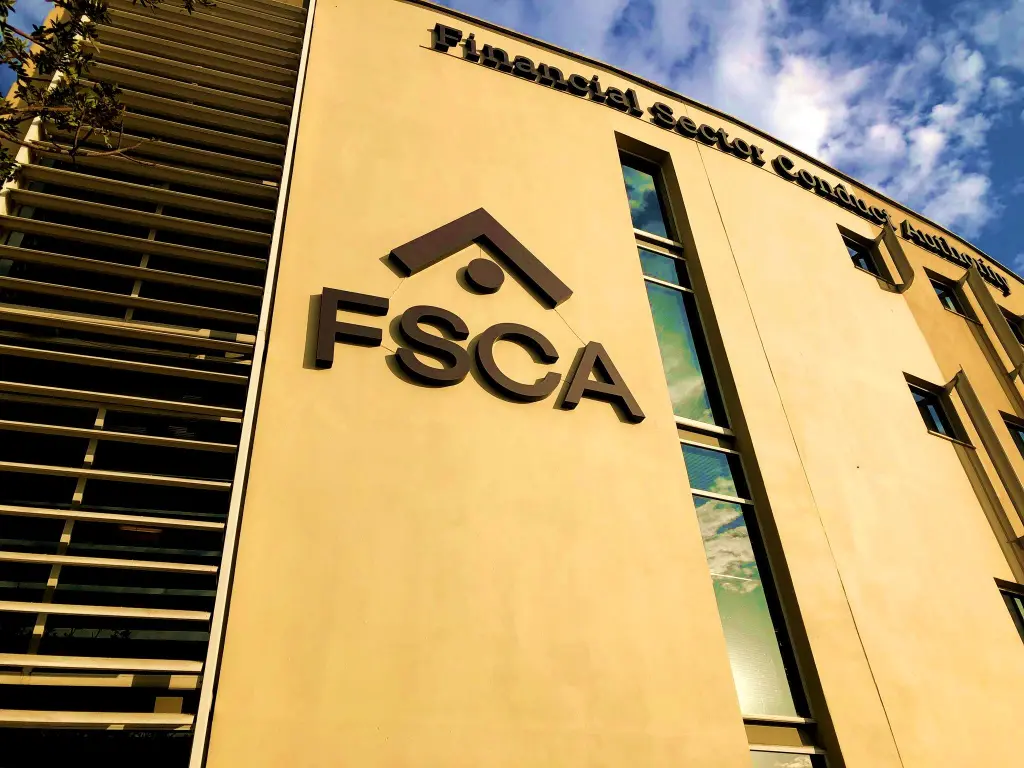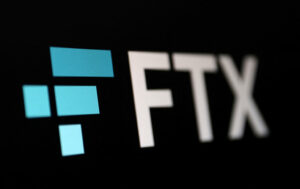-
South Africa’s FSCA crypto licenses were granted to 59 cryptocurrency firms.
-
In August 2022, the SARB laid down guidelines for financial institutions on servicing crypto clients.
-
South Africa’s regulatory milestones underscore its commitment to fostering a secure, inclusive, and innovative financial ecosystem.
In a landmark development, South Africa’s Financial Sector Conduct Authority (FSCA) has granted operational licenses to 59 cryptocurrency firms, signalling a significant step in the integration and regulation of cryptocurrency within the country’s financial landscape.
During the FSCA Industry Conference in Johannesburg, it was disclosed that out of 355 applications, 59 have received the green light, while the remaining are under review.
South Africa embraces crypto evolution with regulatory milestones.
The FSCA’s decision to issue these licenses is part of South Africa’s broader effort to establish a more accommodating regulatory environment for crypto assets. This journey began in November 2018 with the creation of the Crypto Assets Regulatory Working Group by the South African Reserve Bank (SARB), in collaboration with the FSCA, South African Revenue Services (SARS), and the Financial Intelligence Centre (FIC).
Also, Read Paycorp and Triple-A Partnership Redefine Crypto Transactions in South Africa.
This collaborative effort led to the publication of a position paper in July 2021, recommending a comprehensive update to South Africa’s policy and regulatory stance on crypto assets. Following this, in August 2022, the SARB laid down guidelines for financial institutions on servicing crypto clients, emphasizing the necessity to engage with the burgeoning sector rather than shun it.
The FSCA’s recent move to issue crypto licenses covers a broad spectrum of services within the crypto market. Approved business models encompass advisory services, exchanges, payment gateways, both crypto-to-crypto and crypto-to-fiat conversions, crypto asset arbitrage, tokenization services, index-based products, and wallet services.
Felicity Mabaso, the FSCA’s divisional executive for licensing, emphasized the authority’s commitment to enforcing compliance, stating that any entity operating without a license will face investigation and consequent actions. This measure aims not only to legitimize the crypto market within the national economy but also to protect investors and consumers engaging with these digital assets.
Fostering Financial Inclusivity and Security
The integration of crypto assets into South Africa’s regulatory framework marks a pivotal advancement towards financial inclusivity and security. By recognizing crypto assets as financial products, the FSCA brings them under its regulatory purview, thereby enhancing consumer protection and mitigating risks associated with money laundering and terrorism financing.
Furthermore, regulated entities are subject to continuous oversight, ensuring that the dynamic and often volatile crypto market operates within a structured and secure framework. We anticipate that this regulatory clarity will bolster confidence among both existing and potential crypto investors and service providers, paving the way for more innovative and secure crypto-based financial services.
Also, Read CoinFlip expands the Bitcoin ATM network to boost South Africa’s crypto advancements.
As South Africa continues to fine-tune its regulatory approach to the crypto market, the FSCA’s issuance of the first-ever crypto licenses marks a significant milestone in the country’s financial history. This development not only aligns with global trends of increasing crypto regulation but also positions South Africa as a forward-thinking player in the crypto space.

Looking ahead, the ongoing review of applications and commitment to stringent oversight suggest a robust framework for crypto asset management and a promising future for digital finance innovation in South Africa.
The proactive stance of South African regulators, including the FSCA and SARB, towards embracing and structuring the crypto market through FSCA crypto licenses, S.A. crypto regulations, tokenization services, wallet services, and broader crypto market regulation illustrates a keen understanding of the transformative potential of digital currencies.
As the global landscape of financial services continues to evolve, South Africa’s regulatory milestones underscore its commitment to fostering a secure, inclusive, and innovative financial ecosystem.
The strategic issuance of these inaugural FSCA crypto licenses ushers in a new era for South Africa’s position within the global financial and crypto market landscapes. By establishing a regulated framework for cryptocurrency operations, South Africa not only enhances its attractiveness as a destination for crypto investments but also sets a precedent for financial inclusivity and innovation.
The S.A. crypto regulations, characterized by a blend of openness and prudence, aim to balance the dynamic opportunities presented by cryptocurrencies with the imperative to protect market participants and maintain financial stability.
Enhancing Global Competitiveness and Financial Innovation
This significant regulatory step by the FSCA, in approving a variety of business models, from advisory to tokenization services, underlines South Africa’s commitment to being at the forefront of financial technology and innovation.
The approved entities, ranging from exchanges to wallet services, are poised to contribute to a vibrant ecosystem that fosters innovation, facilitates international trade, and enhances financial services. The move is expected to attract further international interest and investment into South Africa’s burgeoning crypto market, enhancing the country’s competitiveness on the global stage.
Setting the Stage for Future Growth
The FSCA establishes a regulatory framework that not only offers clarity and security to current stakeholders in the crypto market but also establishes the foundation for future growth and development in this sector.
By requiring ongoing supervision and setting clear guidelines for operation, the FSCA ensures that the crypto market develops in a manner that is sustainable, responsible, and aligned with international best practices. This approach not only safeguards the interests of investors and consumers but also encourages innovation and experimentation in crypto-based financial products and services.
In conclusion, the FSCA’s issuance of crypto licenses is a progressive leap forward for South Africa’s financial sector, aligning the country with global trends towards the integration and regulation of digital assets.
It reflects a nuanced understanding of the complexities and opportunities presented by the crypto market. As South Africa continues to navigate this evolving landscape, the foundations laid by the current regulatory framework promise to stimulate economic growth, enhance financial inclusivity, and position the country as a leader in the global digital finance arena.
- SEO Powered Content & PR Distribution. Get Amplified Today.
- PlatoData.Network Vertical Generative Ai. Empower Yourself. Access Here.
- PlatoAiStream. Web3 Intelligence. Knowledge Amplified. Access Here.
- PlatoESG. Carbon, CleanTech, Energy, Environment, Solar, Waste Management. Access Here.
- PlatoHealth. Biotech and Clinical Trials Intelligence. Access Here.
- Source: https://web3africa.news/2024/03/23/news/fsca-crypto-licenses-sa-59-firms/
- :has
- :is
- :not
- 1
- 2018
- 2021
- 2022
- 7
- a
- accommodating
- actions
- advancement
- advisory
- advisory services
- africa
- African
- ahead
- aim
- aims
- aligned
- aligning
- Aligns
- also
- amidst
- among
- and
- anticipate
- any
- applications
- approach
- approved
- arbitrage
- ARE
- Arena
- AS
- asset
- asset management
- Assets
- associated
- At
- ATM
- attract
- AUGUST
- authority
- Balance
- Bank
- BE
- began
- being
- BEST
- best practices
- Bitcoin
- Bitcoin ATM
- Blend
- bolster
- boost
- both
- Breaking
- Brings
- broad
- broader
- burgeoning
- business
- business models
- but
- by
- centre
- characterized
- clarity
- clear
- clients
- collaboration
- collaborative
- commitment
- competitiveness
- complexities
- compliance
- comprehensive
- conclusion
- Conduct
- Conference
- confidence
- consumer
- Consumer Protection
- Consumers
- continues
- continuous
- contribute
- conversions
- country
- country’s
- Covers
- creation
- crypto
- crypto asset
- Crypto asset management
- crypto investments
- Crypto investors
- Crypto Market
- Crypto regulation
- Crypto regulations
- crypto space
- crypto transactions
- crypto-assets
- crypto-based
- crypto-to-fiat
- cryptocurrencies
- cryptocurrency
- currencies
- Current
- Customers
- decision
- declared
- destination
- Development
- develops
- digital
- Digital Assets
- digital currencies
- Digital Finance
- down
- dynamic
- Economic
- Economic growth
- economy
- ecosystem
- effort
- Embraces
- embracing
- emphasized
- emphasizing
- encompass
- encourages
- enforcing
- engage
- engaging
- enhance
- Enhances
- enhancing
- ensures
- ensuring
- entities
- entity
- Environment
- Era
- establish
- establishes
- establishing
- evolution
- evolve
- evolving
- Exchanges
- executive
- existing
- expands
- expected
- Face
- facilitates
- finance
- financial
- financial history
- Financial institutions
- Financial Intelligence
- financial products
- Financial sector
- Financial Sector Conduct Authority
- Financial Sector Conduct Authority (FSCA)
- financial services
- financial stability
- financial technology
- financing
- firms
- first-ever
- following
- For
- forefront
- Forward
- forward-thinking
- fostering
- fosters
- Foundation
- Foundations
- Framework
- from
- further
- future
- future growth
- gateways
- Global
- global digital
- global financial
- granted
- Green
- green light
- Group
- Growth
- guidelines
- Have
- history
- HTTPS
- illustrates
- imperative
- in
- Inaugural
- Including
- Inclusive
- Inclusivity
- increasing
- industry
- Innovation
- innovative
- institutions
- integration
- Intelligence
- interest
- interests
- International
- International Trade
- into
- investigation
- investment
- Investments
- Investors
- issuance
- issue
- issues
- IT
- ITS
- johannesburg
- journey
- July
- Keen
- laid
- landmark
- landscape
- landscapes
- Laundering
- leader
- Leap
- Led
- licences
- License
- licenses
- Licensing
- light
- maintain
- management
- manner
- Market
- max-width
- measure
- milestone
- Milestones
- mitigating
- mitigating risks
- models
- money
- Money Laundering
- more
- move
- National
- Navigate
- necessity
- needed
- network
- New
- November
- nuanced
- of
- Offers
- often
- on
- ongoing
- only
- Openness
- operates
- operating
- operation
- operational
- Operations
- opportunities
- out
- Oversight
- Paper
- part
- participants
- Partnership
- Paving
- payment
- pivotal
- plato
- Plato Data Intelligence
- PlatoData
- player
- poised
- policy
- position
- positions
- potential
- practices
- Precedent
- presented
- prevent
- Proactive
- Products
- progressive
- promise
- promising
- protect
- protect investors
- protection
- providers
- Publication
- ranging
- rather
- received
- recent
- recognizing
- recommending
- redefine
- reflects
- regulated
- Regulation
- regulations
- Regulators
- regulatory
- remaining
- Reserve
- reserve bank
- responsible
- Reuters
- revenue
- review
- risks
- robust
- s
- SA
- safeguards
- Said
- sarb
- scrutiny
- sector
- secure
- security
- service
- service providers
- Services
- Sets
- setting
- significant
- South
- South Africa
- South African
- Space
- Spectrum
- Stability
- Stage
- stakeholders
- stance
- stating
- Step
- stimulate
- Strategic
- stringent
- structured
- structuring
- subject
- suggest
- supervision
- sustainable
- Technology
- Terrorism
- terrorism financing
- than
- that
- The
- Them
- thereby
- These
- they
- this
- Through
- to
- Tokenization
- towards
- trade
- Transactions
- transformative
- Trends
- under
- underlines
- underscore
- understanding
- Update
- ushers
- variety
- vibrant
- volatile
- Wallet
- was
- Way..
- we
- webp
- were
- while
- will
- with
- within
- without
- working
- Working Group
- zephyrnet













